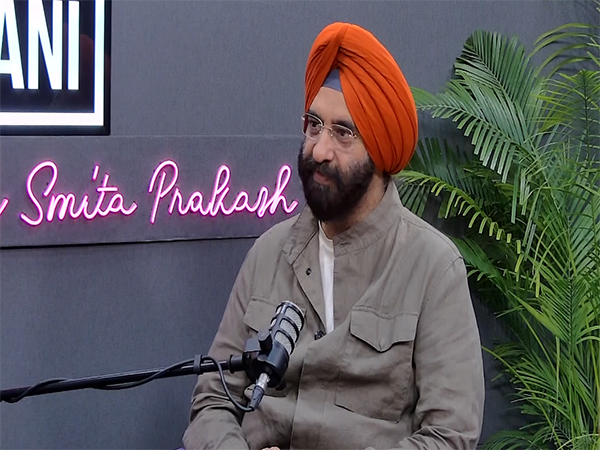New Delhi [India], July 7 (ANI): Delhi Environment Minister Manjinder Singh Sirsa on Monday flagged “challenges and implementation flaws” in the CAQM order that put a ban on fuel for end-of-life vehicles in the national capital, stating that the process should be fair.
In an interview with ANI, the Delhi Minister said there are operational and infrastructural challenges in implementing the Commission for Air Quality Management’s (CAQM) directions concerning the fuel ban on end-of-life vehicles.
Delhi government last week urged CAQM to pause the implementation of its directions. Chief Minister Rekha Gupta said that the decision is linked to the daily lives and livelihoods of millions of families, and there is a need for reconsideration. The directive to stop fuel supply to end-of-life vehicles took effect on July 1.
“Kejriwal (AAP) government in Delhi decided to put up the cameras and identify (end-of-life) vehicles from it. After it was communicated to CAQM, they informed the same to the Supreme Court. The top court termed it as a ‘good move’ and told them to implement it. CAQM issued an order to implement this from July 1,” Sirsa said.
“Two things were there — on one side, there was the order of February 2024 of the Delhi government which said that when they will seize the end-of-life vehicles, initially they will only be fined, and a chance will be given to them to take the vehicle outside Delhi. Contrary to that, in 2025, they issued a different order and said cameras would be placed and vehicles would be seized on the spot. So, now, which rule should be implemented?… Now, we have told CAQM that there are challenges in this order. The process of seizing cars on basis of cameras is wrong; technically, there is a flaw in it,” he added.
Sirsa talked in detail about the implementation challenges.
“For example, there are two vehicles (end-of-life) at the petrol pump, one can be seized and another can’t? Why? Because vehicles with high-security number plate are being identified with camera, but vehicles without it are not being identified. This is unfair… Secondly, petrol and diesel is available in Noida, Gurugram and Faridabad, so, in that case, the order should be implemented everywhere,” he said.
CAQM had issued directions that diesel vehicles older than 10 years and petrol vehicles older than 15 years cannot get fuel in Delhi’s fuel stations from July 1.
“From July 1, all End-of-Life (EoL) vehicles identified through Automatic Number Plate Recognition (ANPR) cameras installed at fuel stations across Delhi will not be allowed to refuel,” the directions said.
Sirsa noted that the Delhi government is looking for measures to resolve the issue.
“I do not agree with the word “end-of-life.” I don’t know how it was generated… Delhi is the only place where there is concept of “end-of-life.” How was it decided?… If a vehicle is end-of-life in Delhi, the moment it goes outside Delhi, it becomes a regular vehicle. How is this possible? It will end the concept of vintage cars too. Nobody can have vintage cars, then… We are looking for ways to resolve the issue,” he said.
“We (Delhi government) didn’t issue any order, it was CAQM order. We have requested them not to implement till it is implemented in neighbouring states too,” he added.
Sirsa wrote CAQM last week seeking a hold on the directive banning fuel sale to end-of-life vehicles in the national capital.
Sirsa, wrote that “certain issues” needed to be addressed before the order could be fully implemented.
“The Government of Delhi is fully aligned with the Commission’s objective to phase out older, polluting vehicles and has implemented a comprehensive Air Pollution Mitigation Plan 2025 to this end,” the letter said.
He argued that immediate implementation may be “premature and potentially counterproductive.”
“A stage-wise implementation that begins only in Delhi will not serve its intended purpose. It is highly likely to lead to vehicle owners procuring fuel from adjacent districts like Gurugram, Faridabad, and Ghaziabad, thereby circumventing the ban and potentially fostering an illegal cross-border market for fuel, which would further exacerbate the problem,” the letter said
“ANPR system is not implemented in the neighbouring states, which will again be an issue in the effective integration of the system with the system of neighbouring states, as and when the same is implemented. So far as our knowledge is concerned, neighbouring districts have not yet started installation of ANPR cameras in the fuel stations,” it added. (ANI)
Disclaimer: This story is auto-generated from a syndicated feed of ANI; only the image & headline may have been reworked by News Services Division of World News Network Inc Ltd and Palghar News and Pune News and World News
HINDI, MARATHI, GUJARATI, TAMIL, TELUGU, BENGALI, KANNADA, ORIYA, PUNJABI, URDU, MALAYALAM
For more details and packages












